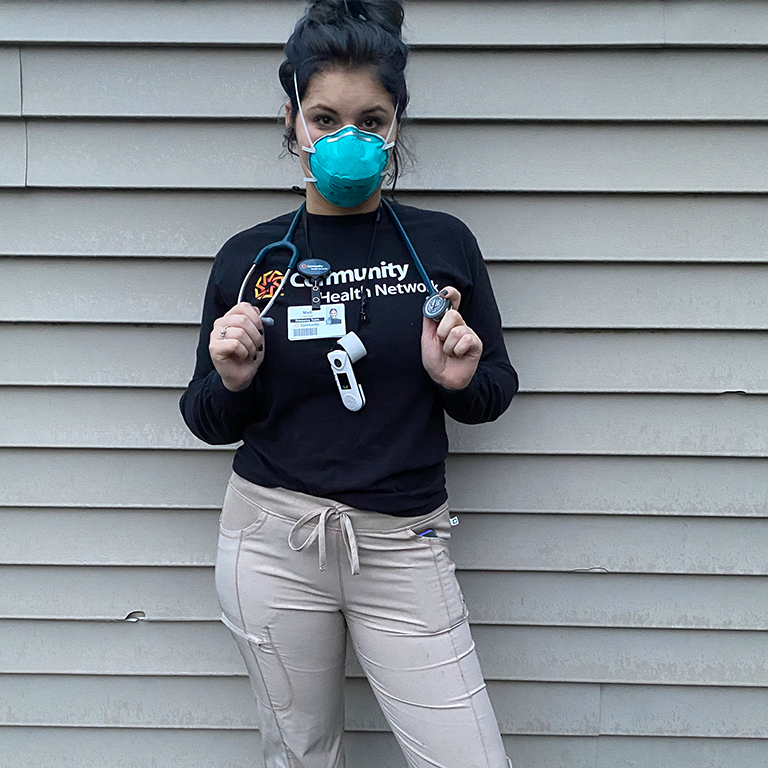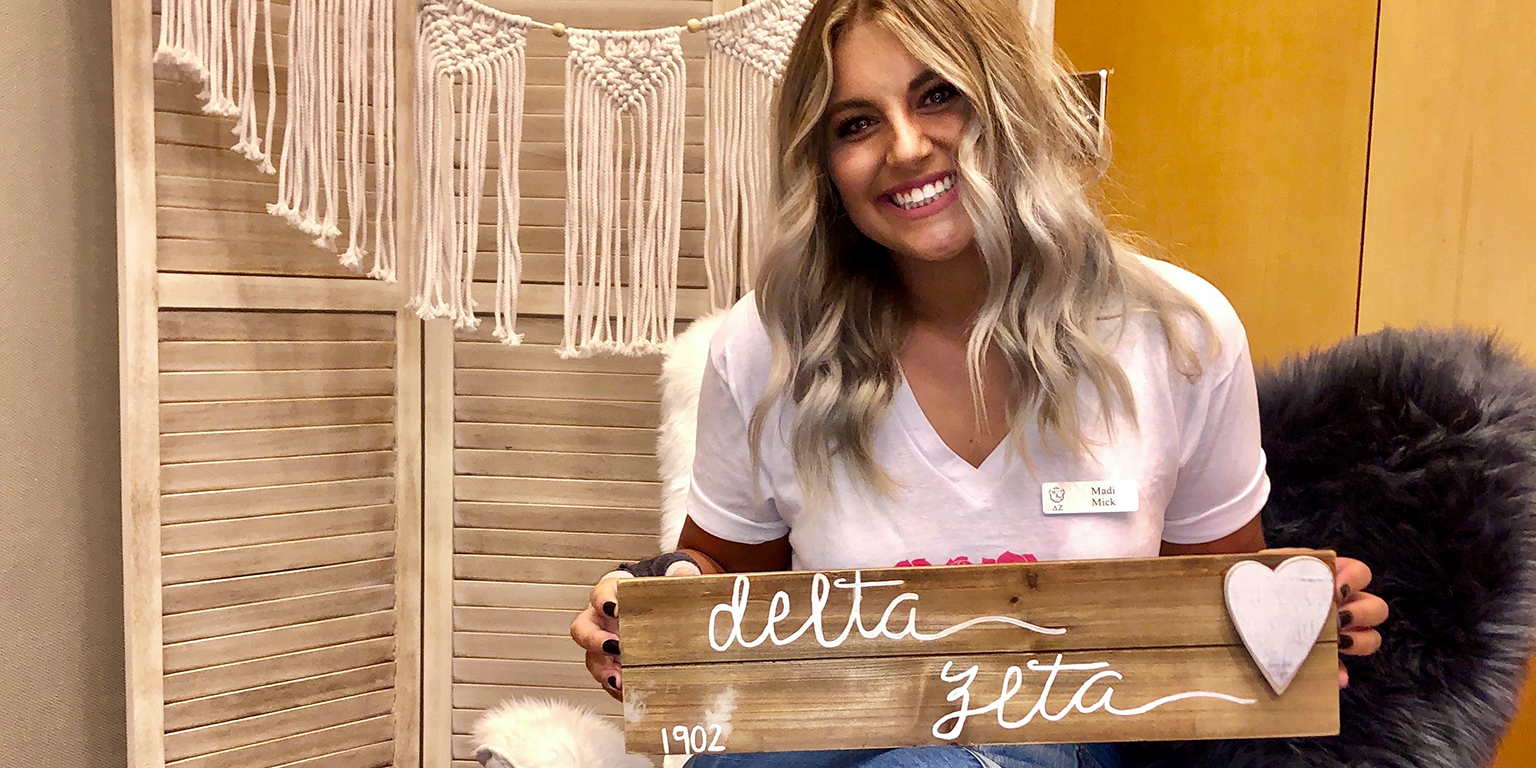During a normal shift as a patient care technician, Madison Mick would arrive at the hospital, get her patient list, introduce herself and discuss with her patients how she would help them.
She’d make small talk, write her name on the white board and prepare to check vitals every four hours. She could walk in and out of patients’ rooms as needed, bringing them snacks and meals, checking blood pressure and ensuring patients are comfortable.
The coronavirus pandemic has flipped normal routines for health care employees and patients.
“Caring for patients the last few weeks has become less personal,” said Mick, a junior in the School of Nursing at IUPUI. “You almost dread going into patients’ rooms because you’re trying to get in and out as quickly as possible in order to protect yourself and the patient. We spend five minutes putting on personal protective equipment before we enter a room.”
Mick is on the resource team for Community Health Network, which means she could work on any unit at any hospital in the Indianapolis network. She works the night shift and never knows what she might walk into.
“One day we are wearing a new mask for each shift, and the next day I’m saving my mask to wear it on my next shift. And one day I could be on a COVID-19 unit, and the next day I’m on a clean unit.”
Health care staff working on clean units are getting less protection than staff working on COVID-19 units. This has caused them to cluster their care and minimize contact.
“When we cluster our care, it means one nurse or patient care tech tries to accomplish as many things as possible with a patient in the least amount of time,” Mick explained. “I might ask a nurse to check vitals when they are delivering medication so that we keep as many people out of the patient’s room as possible.”
The hospital floors are operating on a community of care model where instead of caring for certain patients, nurses and other health care employees are caring for all patients on that floor. It’s truly become a team effort, and nurses are playing a crucial role in keeping patients safe and well.
When she gets home from work in the early hours of the morning, she goes over her assignments, completes any immediate work and tries to work ahead in as many classes as possible before she sleeps for the day. The nurses Mick works with have been a guiding light to her as she completes her coursework, always answering questions and helping her with concepts she might be struggling with.
Not only is Mick working as a patient care tech and attending nursing school full time, but she is also serving as the president of her sorority -- Delta Zeta. She’s learning lessons from all of her roles and applying lessons learned in all facets to find success.
“The teamwork I’ve experienced at work is what I’ve brought to Delta Zeta during this time,” Mick said. “I’m really relying on the rest of the executive team to move things forward and seeing other sorority members rise as leaders and try to make the best of this has been great. On the other hand, one of my biggest strengths in the sorority is being a big voice and speaking up when needed, and I’m applying that at work to better advocate for myself and ask hard questions.”
Mick will take a handful of lessons away from this experience to apply to her future nursing career.
“This experience made me realize just how important relationships with my patients are,” Mick said. “I will do whatever I can to make sure they fully understand what’s going on, advocate for them and advocate for their needs.”
In addition to being president of Delta Zeta, Mick was recently elected president of Order of Omega at IUPUI, the fraternity and sorority life honorary society.



